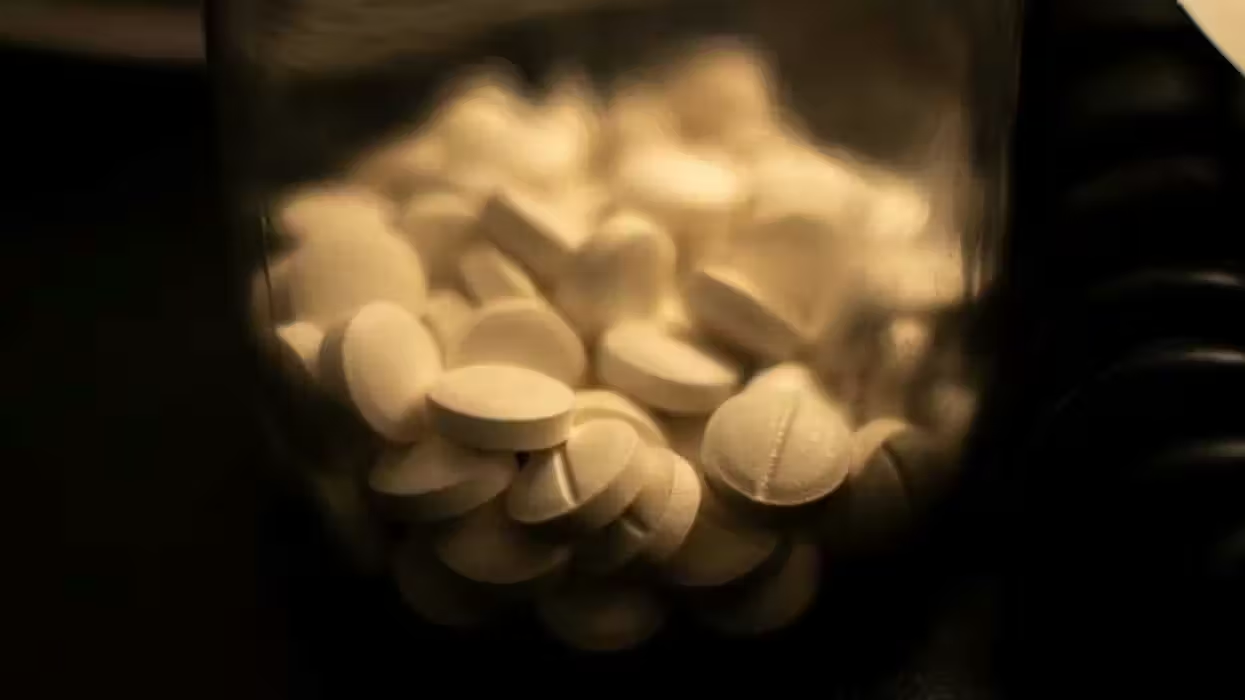
NurPhoto/Getty Images

The influence of antidepressants on the Columbine killers and others remains largely unstudied.
There’s no link between antidepressant use and mass shootings, at least not according to a new study published in the journal Psychiatry Research.
Certainly good news for the pharmaceutical industry — but does one study really mean case closed?
The FDA’s own adverse event reporting system shows a consistent link between SSRIs and violence among adults.
It’s a controversial topic that has only become more so in recent years, especially now that Robert F. Kennedy Jr. is the secretary of health and human services under President Trump.
Kennedy has long maintained that antidepressants are causing mass shootings. In an interview with Elon Musk in 2023, for example, Kennedy said, “Prior to the introduction of Prozac [a selective serotonin reuptake inhibitor], we had none of these events [mass shootings].”
In his confirmation hearings in February, he told the Senate that the link “should be studied, along with other possible culprits.”
He was asked to clarify his views about antidepressants and mass shootings by his Democrat interrogators, because they were intended to be discrediting just by being uttered aloud — just like his views on water fluoridation, vaccination, and the origins of COVID-19. A whole basket of deplorable ideas.
In short, we’re talking about yet another partisan political issue, even though, surely, we can all agree that mass shootings are terrible and we need to do everything we can to stop them.
And that includes, obviously, understanding what motivates the shooters.
The new study looked at over 800 mass-shooting incidents that took place between 1990 and 2023. The researchers used publicly available data — news reports, court records, and police statements — to see whether the perpetrators had any history of antidepressant or psychotropic drug use and whether there was a link between suicidality and mass shootings. Previous research had suggested there was such a link.
The researchers found evidence of lifetime antidepressant use in just 34 out of 852 cases and evidence of psychotropic drug use more broadly in 56 cases — just 6.6%. There was no unusual association between suicidality and mass shootings either. Suicide attempts were slightly more common among those with a history of medication use, but the difference was not statistically meaningful.
Population-level data also indicated that antidepressant use among mass shooters was lower than among the general public. If antidepressants were causing mass shootings, we’d expect levels of antidepressant use to be higher, not lower.
QED — or so the researchers believe.
“The vast majority of mass shootings have nothing to do with mental illness,” Ragy R. Girgis, one of the study authors, told medical news website PsyPost.
“The primary modifiable population-level risk factor for mass shootings is firearm availability.”
Prevent people from getting their hands on guns, prevent mass shootings. It’s that simple.
Or is it?
RELATED: Groomed for violence? The dark world of furries and transgenderism in America's classrooms

There’s a glaring problem: The data simply isn't good enough to allow any kind of firm conclusion to be reached. The writers at "PsyPost" do at least acknowledge there’s a serious problem, although it doesn’t stop them from trumpeting “new study finds no evidence” in their headline.
Here’s what "PsyPost" says about the reliability of the evidence on offer.
Data were collected from publicly available sources, such as news articles and online records. This approach may miss cases where medication use was not reported or was kept confidential. The study also could not determine whether medications were being taken as prescribed during the attack or whether the person had recently stopped taking them.
Data is often kept confidential, even in the most high-profile cases. Take the Columbine shooters, Eric Harris and Dylan Klebold. At the time of the massacre, which claimed the lives of 14 people and left another 20 wounded, it was widely reported that Harris had been on the powerful new SSRI Luvox, generic name fluvoxamine. The New York Times claimed Harris had been rejected by Marine recruiters just five days before the attack for taking the drug.
There were suggestions that he had tried to go cold turkey as a result and that this might have affected his actions on that dreadful, bloody day. The Times noted that “patients taking Luvox are warned that if combined with other drugs, including alcohol, the drug can cause extreme agitation progressing to delirium, coma and death. The package also carries a warning about suicide.”
While officials said neither shooter had drugs or alcohol in his system at time of death, the coroner refused to say whether they had been tested for antidepressants, including Luvox.
And so we still don’t know, 26 years later, whether antidepressants played a role in the Columbine killings.
Thankfully, there are now some attempts to provide answers. Unsurprisingly, they’re coming from Republican politicians and red states.
Tennessee has become the first state in the U.S. to introduce mandatory screening for psychotropic drugs in mass killings, defined as incidents in which four or more people are killed. In every mass killing that takes place in Tennessee, a detailed toxicology report will be produced and made available to the public. Investigators will study drug interactions in the killer’s body — because drugs have different effects when used in combination, a fact that is poorly understood — and they’ll also consult with providers of mental health services if the killer was receiving treatment.
Here’s something we do know for sure. A clear, well-established link exists between SSRIs and all forms of violent behavior. A huge Swedish study from 2020 that looked at 250,000 people revealed a significant association between SSRI use and violent crime, especially among 15- to 24-year-olds and 25- to 35-year-olds. The study also showed that risk of violence remained elevated up to 12 weeks after discontinuation of the drugs. The FDA’s own adverse event reporting system shows a consistent link between SSRIs and violence among adults.
Instead of dismissing the possibility of a link between antidepressant use and mass shootings, we actually need to do some proper research. Gather data and interpret it objectively — meaning dispassionately, without imposing an ideological agenda that fixes the conclusions in advance.
I know that’s a tall order, given how emotional a subject mass murder is — especially mass murder of children — and how unwilling we all are to talk across the growing political divide, but that’s the scientific ideal, and that’s the only way we’re ever going to get to the truth.
As every first-year history undergraduate knows — and I was one, once upon a time — absence of evidence is not evidence of absence. Let’s not get twisted. Lives are at stake.
Raw Egg Nationalist